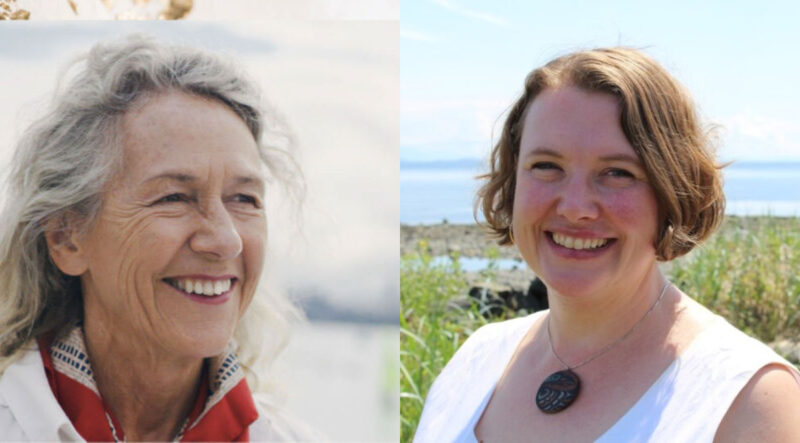Hypocrite federal politicians killing aquaculture jobs in BC
Thousands of aquaculture jobs on the line as federal MPs doublespeak to shut down salmon farms in British Columbia.
By Fabian Dawson
SeaWestNews
It was less than a year ago Federal Fisheries minister Joyce Murray announced that the future of salmon farming in British Columbia will largely depend on First Nations who want the aquaculture operations in their traditional territories.
Acknowledging First Nations’ rights to define their relationships with the aquaculture industry, Murray said she has placed indigenous interests and reconciliation at the centre of a discussion framework, which outlines a proposed vision for open-net pen transition in British Columbia.
But that vision and vow are nothing more than a cynical public relations exercise say First Nations and the BC Salmon Farmers Association (BCSFA), which represents a sector that supports thousands of jobs in coastal, rural British Columbia.
In a statement, the BCSFA said it has learned that Murray is proposing the further removal of salmon farms in BC after recently closing 40 per cent of existing farms since 2020.
“A decision like this will result in the loss of thousands of jobs, trample Indigenous Rights, and leave businesses who support the industry scrambling to survive,” said Brian Kingzett, Executive Director of the BCSFA.
“This decision is not based on any credible science, including DFO’s own peer-reviewed studies, and is not supported by the many First Nations who want to continue salmon farming in their waters,” he said.
“The closure of salmon farming will decrease Canada’s local food supply, forcing Canada to import salmon from other countries to meet the needs of Canadian consumers at a significant price increase. The plan will also take away the ability of BC’s rural, coastal communities to participate in Canada’s Blue Economy.”
First Nations and the salmon farmers said the entire Transition framework engagement process has been flawed from the start.
Currently, 17 BC First Nations have partnership agreements for farming salmon in their territories producing 78% of all salmon farmed in the province. Aquaculture is B.C.’s largest agricultural export and its production represents 60% of Canada’s total salmon production.
The Coalition of First Nations for Finfish Stewardship (FNFFS) has already labelled minister Murray “untrustworthy”, after she ignored her own scientists and court rulings that have shown that the salmon farms in BC pose less than a minimal risk to wild stocks migrating through the maritime operations.
Murray, a prominent advocate to end open-net salmon farming in BC, is expected to present options to the Federal Cabinet as early as next week that will impact more than 4,700 jobs and $1.2 billion in economic activity annually.
“Minister Murray has not followed her own engagement plan, and we have constantly seen shifting deadlines and goalposts affecting the ability of participants to engage effectively, including the First Nations and salmon farming organizations,” said Kingzett.
“In addition, we have had to deal with constantly changing processes, deliverables, and extremely challenging deadlines. How do you achieve success when the DFO Minister keeps changing the rules and timelines.
“Any proposed further reduction, which some may claim is a reasonable compromise, could signal the closure of the entire sector,” he added.
Murray’s office said a decision has not been made on the Transition Plan for open-net pen salmon farming in British Columbia.
“Consultations are ongoing with Indigenous communities, the Province of BC, industry, ENGOs, and British Columbians to move forward on this transition. The plan will be shared in due course,” her office said in a statement emailed to SeaWestNews.
Meanwhile, the BCSFA has also criticized North Island-Powell River NDP MP Rachel Blaney who has been pushing to kill the industry.
She has been in the forefront of the science-deficit activism to oust salmon farmers from BC oceans – which is the main economic lifeline for many of the coastal communities in her riding – saying the industry can be replaced with land-based fish farms, despite being well aware that growing fish on land will exacerbate climate change.
The MP then recently wrote a letter to Minister Murray stating that despite her repeated calls for a strong transition plan, “there has been no plan announced and very little response from your office.”
“Many people of the North Island – Powell River riding rely on salmon and fisheries for our economic, ecological, and cultural well-being. They are concerned that they will have no opportunity to offer insights or input into the development of an effective and sustainable plan as fish farms are moved.”
“Your government can alleviate some of the stress by being transparent about the process, yet it fails to do so,” she wrote.
Kingzett in response to Blaney said the impacted communities do not need a short-term monetary Band-Aid but regulatory certainty.
“A small monetary fix will not offset the long-term devastation these communities will experience if our sector leaves British Columbia,” he said.
“Cumulative and federal government science has been clear; salmon farms do not pose more than minimal risk to wild Pacific salmon, and we have repeatedly stated that we will continue to innovate to reduce potential risk further.
“We encourage you to do your due diligence and speak with the First Nations within whose territories we operate, as well as the many supplier and service companies that rely on our sector to understand our sector’s real impacts on these communities,” he added.
(Collage shows Federal Fisheries Minister Joyce Murray (left) and NDP MP Rachel Blaney)

